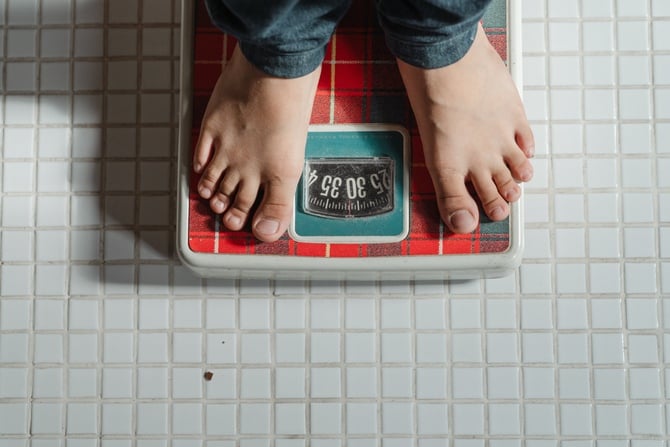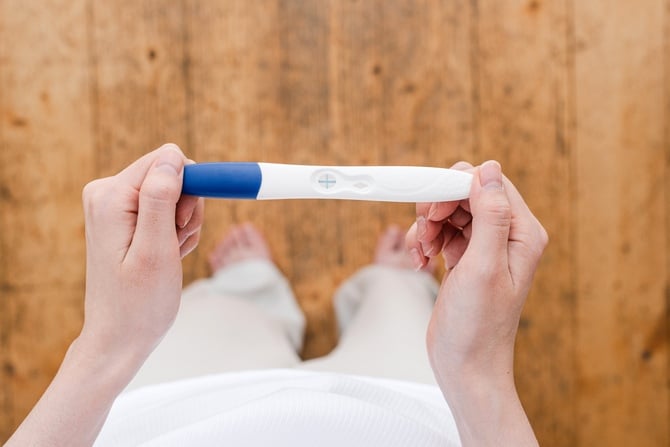
Seven Serious Sleep Deprivation Side Effects
We’ve all had a few unexpectedly disturbed nights – and a few may not cause too much of an issue. The trouble comes when it becomes a habit. Here are a few of the less pleasant side effects of regular sleep deprivation.
1. Skin Problems

It should not surprise you to learn that lacking sufficient sleep the night before will not exactly result in you looking your best. It also follows that the longer you deprive your body of the time it needs to rest and regenerate, the more severe and permanent those effects will become.
Sleep is the time when collagen and other proteins that give skin its elasticity are repaired. Without decent sleep, you will increase the signs of early ageing and increase your chances of developing conditions such as acne.
2. Your Body’s Immune System
If you often find yourself catching every cold that's going around, it could be a sign that your sleeping schedule is not optimal.
When we sleep, our body goes through various restorative processes that help strengthen our immune system. During deep sleep, our immune system releases proteins called cytokines, which are essential for fighting off infections and inflammation.
These cytokines help regulate the immune response and promote the production of antibodies that target specific pathogens.
Not just that, but lack of sleep can affect the production of other immune cells, such as T cells and natural killer cells which play a crucial role in identifying and destroying infected cells.
3. Hair Problems
Research has shown that there is a significant correlation between inadequate sleep and hair loss, particularly in men.
This connection can be attributed to the fact that sleep deprivation not only affects the body's overall functioning but also leads to increased stress levels.
Hormones play a crucial role in various bodily processes, including hair growth. In particular, the hormone dihydrotestosterone (DHT) is known to contribute to male pattern baldness.
Elevated DHT levels have been linked to the shrinking of hair follicles, which eventually leads to hair thinning and loss.
4. Serious Health Problems
Research has shown that individuals who consistently lack sufficient sleep are at a higher risk of developing serious health issues such as heart disease.
High blood pressure, or hypertension, is another condition that can be exacerbated by sleep deprivation. Lack of sleep can lead to an increase in stress hormones, which can cause blood vessels to constrict and blood pressure to rise.
Over time, this can lead to chronic hypertension, which significantly increases the risk of heart disease and stroke.
Lastly, sleep deprivation has been associated with an increased risk of developing diabetes.
Lack of sleep can disrupt the body's ability to regulate blood sugar levels, leading to insulin resistance and an increased risk of developing type 2 diabetes.
Diabetes, in turn, is a significant risk factor for heart disease and other cardiovascular complications.
5. Weight Problems

Sleep plays a crucial role in regulating the levels of two hormones, ghrelin and leptin, which have a significant impact on our appetite.
Grehlin is responsible for signalling to the brain we are experiencing hunger, while leptin indicates we are full and do not need to eat any more.
By not getting a decent amount of sleep, the body's hormonal balance is disrupted and the levels of ghrelin and leptin are thrown out of balance.
The increased levels of ghrelin and reduced levels of leptin cause a perfect storm for food cravings.
Not helpful if you’re trying to shed a few pounds…
6. Fertility Problems

One of the key hormones involved in the reproductive process is called luteinizing hormone (LH). LH plays an important role in regulating the menstrual cycle in women and the production of testosterone in men.
However, when sleep is constantly disrupted, the secretion of LH can be reduced, leading to irregular menstrual cycles in women and decreased sperm production in men. This can ultimately make it more challenging for couples to conceive.
Additionally, disrupted sleep can also lead to fatigue and decreased libido, further impacting the ability to conceive.
It is important for individuals who are trying to conceive to prioritise healthy sleep habits and ensure they are getting enough restful sleep each night.
7. Memory Problems
Recent research conducted by a group of scientists has shed light on a fascinating discovery regarding the impact of sleep deprivation on cognitive functioning.
One of the key aspects affected by sleep deprivation is short-term memory.
During the REM sleep stage, the brain undergoes a crucial process of converting short-term memories into long-term ones.
However, when individuals do not get enough sleep, this essential transformation is hindered, leading to a significant decline in short-term memory retention.
Their findings also suggest that the consequences of sleep deprivation can be comparable to those experienced when one has a blood alcohol content of 0.1%.
To put that in perspective, in the UK, the drink-drive limit is 0.08%.
Naturally, it's challenging to drift off and remain asleep if your mattress isn't in prime condition. Dormeo can help eliminate the most common causes of a lack of sleep but don’t just take our word for it.
All our mattresses, whether from our bestselling Memory Range or our luxury Octaspring range, is available in Single, Double, King and Super King sizes and come with our 15-year warranty and our 60-night Comfort Guarantee.
We are so sure that you will experience the best sleep if you don’t agree within the 60-day trial period, we'll happily refund you the cost of the mattress with our ‘No Quibble Refund’.
If you have any questions or queries, we are on hand any time to answer them, free, on 0800 625 0134.







Leave a Reply